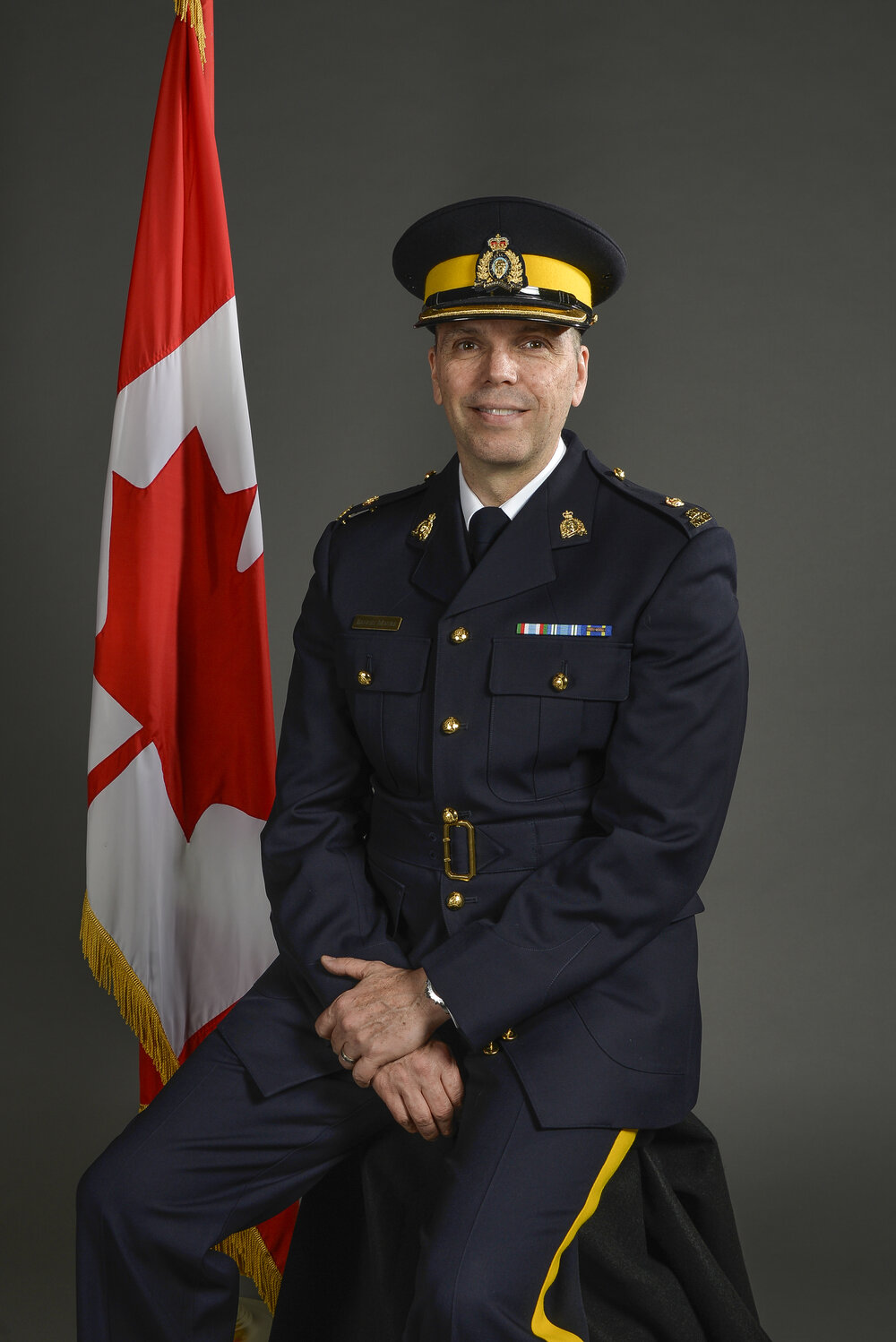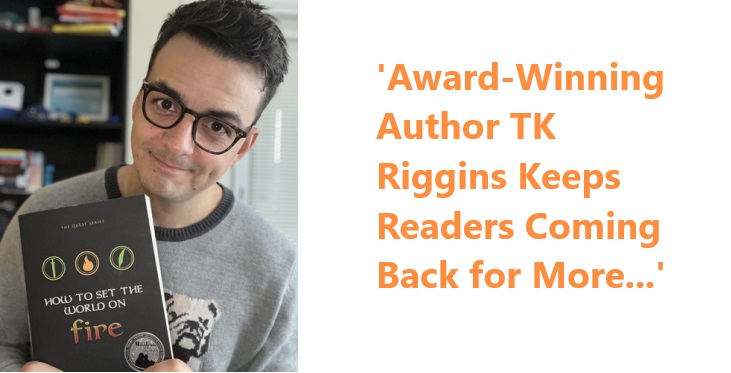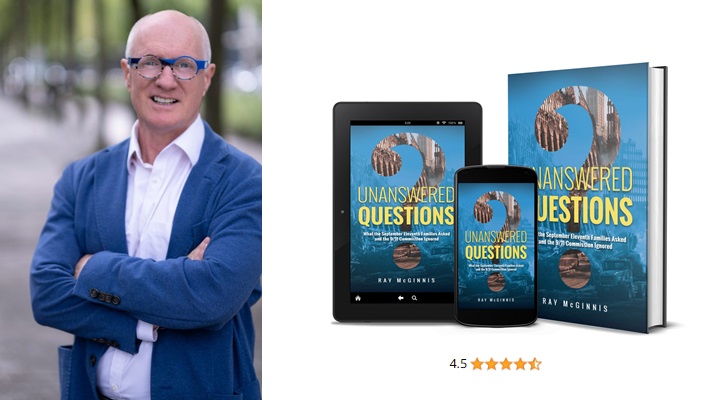The Top 5 Skills of a Nonfiction Writer
 In this article you’ll learn the top 5 skills of a nonfiction writer that are needed to create a compelling book that connects with your audience and that competes effectively with the best nonfiction books in your niche.
In this article you’ll learn the top 5 skills of a nonfiction writer that are needed to create a compelling book that connects with your audience and that competes effectively with the best nonfiction books in your niche.
These are the same skills that professional nonfiction authors take advantage of every day to produce great books. Master these skills and you’ll be leveling the playing field with the best in the genre!
Skill 1: Write Like You’re Being Paid
In the world of book self-publishing, there are three key factors to take into account:
- People buy nonfiction books because they need to solve a problem and they need to trust that the content will be credible, thorough and effective.
- Your ultimate goal as a nonfiction author is to expand the reach of your business or career beyond your current boundaries.
- In the age of the Internet, books have the unique ability to penetrate new global markets with ease and for a minimal distribution cost, which demands a high level of quality.
Nonfiction is a highly scrutinized genre and the removal of barriers to publication also removed the natural process of selection and curation that’s an integral part of traditional publishing.
So, in order to produce as a self-publishing author the high level of attention to detail that’s expected in the genre, you need to develop the same level of discipline and focus expected from traditionally-published authors.
In fact, these authors have to sign binding publishing agreements that impose clear deadlines, deliverables and consequences for non-performance — this is the stick. The carrot is the payment of a significant monetary advance in exchange for their commitment to producing the desired results.
Now, in your case the carrot and the stick are not as clear-cut as in the above example, but in order to succeed you’ll still need to be subject to them, which is what I mean by “writing as if you were being paid.”
Let’s begin be talking about the monetary incentive. While it’s true that you won’t receive an advance when you self-publish, you will receive a deferred payment which could be as significant as any advance on royalties, if not larger.
Think of the many revenue streams that your book will unlock:
- As a calling card to accelerate the conversion of prospects into clients
- As a key to penetrate the world of paid-speaking events
- As a powerful tool of persuasion when bidding for lucrative private or government contracts
- As a way to open global markets through the ubiquity of search engines
- And last but not least, through the purchase of books online and back-of-the-room sales at events
That’s your carrot.
Let’s now talk about the stick. How do you find the motivation to draw the necessary discipline and focus that will get the job done in a timely manner and at the high level of quality that’s expected in the genre?
Simple. You need to create an firm and immovable deadline with an arm’s-length party where your professional reputation will be at stake should you not deliver (self-imposed deadlines, on the other hand, don’t usually work because there lack real-world consequences.)
Here are some examples to consider (note: make sure your deadline is 12 months from the beginning of your book project to accommodate a typical nonfiction publication timeline):
- Book yourself as a speaker in a conference in your area of expertise where you’ll be unveiling your book.
- Schedule a seminar for members of your industry where you’ll showcase the solution that you’ll present in your book.
- Book yourself into a panel discussion that covers your upcoming book’s subject
- Book yourself to be a speaker in an industry trade show
- Time the release of your book with a seasonal sales event in your industry
Once you commit with a clear deadline to an audience of peers, clients, event planners and other stakeholders in your profession, you’ll get the motivation necessary to deliver results because your integrity and reputation will be on the line.
Skill 2: Write Every Day
Once you have a clear deadline in place, you’ll need to develop the discipline and focus required to get you to the finish line.
What sets professional authors apart from amateur ones is the discipline to write every day, come rain or shine. They set a clear writing schedule that typically begins and ends at the same time every day and they stick to it no matter what life throws at them.
Even seasoned authors with decades of professional experience follow this routine — their may have an advantage over less experienced authors when it comes to the volume of work they can produce in the same time frame, but they still stick to a daily writing routine.
Not unlike music performance or other fine arts, the only way to gain mastery in a craft is through constant, uninterrupted practice.
Now, professional authors will usually write for many hours a day (6-8 hours isn’t unusual) — after all, writing is their day job, but you don’t have to commit to even half of this writing regime.
In fact, a mere two hours a day will be sufficient to produce a high-quality, well-written nonfiction book from beginning to end within a year. The key is consistency. You need to be able to allocate two uninterrupted hours per day where you do nothing but write.
This means no responding to emails, phone calls, messaging or even browsing the Internet during this time. Any research or other type of supporting activity required for your book needs to be conducted outside of those two hours.
Also, it goes without saying that you shouldn’t be interrupted under any circumstances during your writing time (short of a real emergency). Make sure you enlist the help of those around you to hold any calls and protect your daily writing time.
The same goes for your electronic devices. Make sure you have all notifications muted, and if you’re using a native program for writing your book, like Microsoft Word or Libre Office, you may even want to turn off the Wi-Fi on your device during this time to eliminate any temptations.
Skill 3: Write For An Audience of One
Now, let’s switch gears to the actual process of writing. Successful nonfiction books speak to a single reader — the one holding the book. They don’t address readers in generalities or as a group, and absolutely never in the first person.
Successful nonfiction is always addressed to an audience of one, thus focus almost exclusively on the pronoun “You.” Problems afflict individuals. When someone purchases a book that claims to offer a solution to their problems, they expect the writing to be addressed to them and no one else.
If your book addresses a group of people, a generic person or even yourself (e.g. by using “We,” “Us,” “They,” “I”) your message won’t be nearly as effective because it won’t be personal in nature. The vast majority of readers are tuned to the WIIFM station: “What’s in it for me?”
The more you address readers directly, the more likely you’ll be in a position to connect with them beyond the written word – that is, at the emotional and psychological level that’s necessary to persuade people and get them to take your desired action.
What you don’t want is for your book to be made up merely of information, data, or just your thoughts. You want your book to be compelling to readers, you want it to connect with their emotional core because it’s at that level that your solution will be embraced.
If you write nonfiction to cater to the critical thinking part of the brain (textbooks or reference books are a good example) you’ll find that readers will put your book down quickly and move on to the next thing.
For your book to effect change, you need to establish a direct path to your readers’ hearts, which can only be achieved by making each one of them center stage in your message.
Skill 4: Write With Your Authentic Voice
Next, you need to make sure that you communicate with authenticity. There’s nothing that turns nonfiction readers off more than hiding behind your writing.
General nonfiction, and problem-solving nonfiction in particular, is very intimate in nature and this intimacy demands that you display your vulnerability, you own voice, unafraid of what people will think.
If you create a barrier between you and your reader, don’t expect them to connect with your message. Readers can quickly sense lack of authenticity and they won’t appreciate it.
By extension, never write in a condescending way or position yourself as the guru on the mountain-top. You want readers to relate to you as much as possible in order to create a true connection.
Even though you may know something they don’t, you still have to relate to them in order to communicate it effectively. If you position yourself as the professor dispensing advice at the lectern, readers will think that they’ll never be able to measure up to you, your success or your breakthrough.
For your solution to be embraced by your readers you need present it as something anybody can implement in their lives. So, if you found yourself in the past to be in the same position your readers are in now, make sure to share this information to show them that you were in their shoes.
Having said that, if you haven’t been in their shoes in the past, don’t be disingenuous and make up or exaggerate stories of hardship, because your readers will see through it.
The best approach is to always write with your authentic voice and never try to be someone you’re not. This is really no different from the way your act in your day-to-day life with your clients or peers.
Skill 5: Use An Economy of Words
Now that you’re writing to an audience of one and you’re using your authentic voice, let’s switch focus to the use of language. Unless you’re a professional writer, you’ll quickly find that the written word is quite different from the spoken word that you rely on in your daily experience.
When making the transition to the written form of communication, you’ll be tempted to “fill space,” to make sentences much longer than necessary through the use of filler words, unnecessary adjectives and adverbs, overly complex nouns, and the use of phrases that don’t add value to your message.
For example, you may write “Indubitably” instead of “Without a doubt,” or “This solution has three components” instead of “This solution has three parts.”
In nonfiction, you want to use words that open a glide path from your mind to the mind of your reader. You want to convey your message in as direct a way as possible.
If you place bumps on the road, such as by using flowery language, complex words or overly long sentences, you’ll make your readers trip and become disconnected from your message.
So make sure to use an economy of words whenever you write. The best test is this: if a word can be removed without changing the meaning of your message, then it’s by definition an unnecessary word.
In Closing
When readers look for nonfiction titles to solve a problem they’re experiencing, they’ll do a search online that will likely bring up your title along with the titles of traditionally published authors in your niche. The above five skills will help you level the playing field with those authors you’ll be competing with.
Good Luck!
If you enjoyed this article and are considering creating a nonfiction book, be sure to check out my free nonfiction success guide, drawn from years of experience editing books for bestselling authors (including a New York Times bestseller) and ghostwriting for CEOs and politicians. Simply click here to get instant access.
Ben
Leave me a comment below if you have any questions or a specific need that I can help you address – I operate an author services firm that specializes in helping entrepreneurs, professionals and business owners who want to publish books as a calling card for prospects, to establish their status as an expert or to just to generate additional leads for their businesses.
Here are some related posts I highly recommend:
How to Write a Compelling Book in 12 Steps: A Must-Read Guide for Nonfiction Authors
How to Grow Your Business Writing a Nonfiction Book
How Long Does it Take to Write a Book to Help Grow Your Business?
Write Your Own Book and Become an Expert: 11 Reasons Why You Should
 Bennett R. Coles is an award-winning author of six books published through Harper Collins (New York) and Titan Publishing Group (London). He is also the publisher at Promontory Press, editor for multiple bestselling authors (including a NY Times bestseller), ghostwriter for CEOs and politicians and the founder of Cascadia Author Services, a boutique full-service firm that specializes in premium author services specifically designed for busy professionals. Our end-to-end services include writer coaching, ghostwriting, editing, proofing, cover design, book layout, eBook production, marketing, printing and distribution.
Bennett R. Coles is an award-winning author of six books published through Harper Collins (New York) and Titan Publishing Group (London). He is also the publisher at Promontory Press, editor for multiple bestselling authors (including a NY Times bestseller), ghostwriter for CEOs and politicians and the founder of Cascadia Author Services, a boutique full-service firm that specializes in premium author services specifically designed for busy professionals. Our end-to-end services include writer coaching, ghostwriting, editing, proofing, cover design, book layout, eBook production, marketing, printing and distribution.
2 responses to “The Top 5 Skills of a Nonfiction Writer”
-

Bennett
Thank you for this article. I am about to start my nonfiction book and this is wonderful information. My book is about my journey through ovarian cancer using what i know best chiropractic care nutrition and exercise. I am a chiropractic who used all of these tools in my daily life before cancer and for all my patients in practice. So far I have only met with barriers from MD, cancer center and Cancer Foundations stating they have ALL the answers to the cancer problem. I do believe I will be seeking you out if I may for further information as I begin my journey writing my book which at time can be overwhelming as you stated.
Thanks again
Pamela -

Hi, Bennett:
Congratulations, Bennett, on a very comprehensive and useful article, a welcome alternative to the “Write and Publish Your Book In 24 Hours” books that fills our ebpxes so often. My record is two half-days, and that consisted of just 140 nonfiction book title tips each less than 140 words.
Best wishes. .
Roger







Leave a Reply